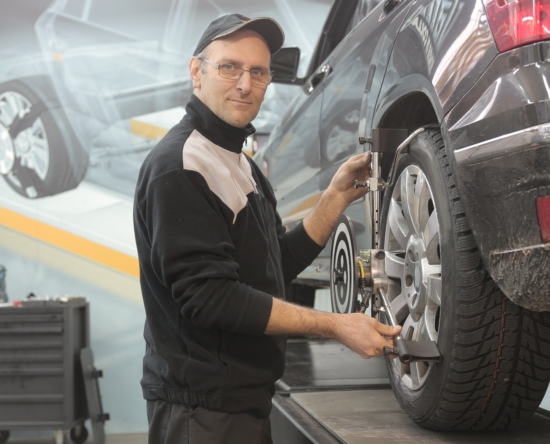Comment: Tyre fitters are here to stay
 (Photo: Andrea Piacquadio)
(Photo: Andrea Piacquadio)
In addition to the latest news and analysis, July’s edition of Tyres & Accessories features the aftermarket, van tyres as well the agricultural/industrial/speciality tyre sector. The latter has proved to be amongst the most resilient sectors during the turbulence of the last year or so. The former two reflect changing market dynamics. In short, many things have changed in the automotive and tyre spaces. And the disruption of the Covid-19 pandemic has accelerated that change. But some things stay the same.
For years now the lines between tyre and fast-fit specialists and autocentres have been blurring as tyre specialists take on more vehicle servicing work, while autocentres sell more tyres (see page 12 for Halfords Autocentres’ particularly clear example of this trend). The humble MOT is at the junction of these two “roads”, with tyre, brakes and exhaust replacements (all traditional fast-fit work) being identified by the MOT test.
…MOT boom and bust?
However, while the MOT brings what might be termed aftermarket work with it, the state-mandated test also brought some disruption of its own when the government enacted a six-month extension to the testing cycle last year. That led to a lull and then a boom in 2020 (see page 22 onwards for further details), which raises the question of what is happening this year.
Seventy-four per cent of garages saw their business decrease in April 2021, an independent survey carried out from Impression Communications suggests. The survey, which was sent to more than 15,000 garages, was designed to look at the consequences of the MOT extension. The survey also revealed that 48 per cent of garages had accessed the job retention scheme (furlough) in April.
Regarding the DVSA’s SAFE campaign encouraging motorists back into workshops running in April and May, the audience was split with 50 per cent of garages aware of the initiative. Looking ahead, 51 per cent of garages were “optimistic” about the future and 60 per cent of garages expected staff levels within their garage to stay the same over the next six months.
On the subject of apprentices and the skills shortage, only 37 per cent of garages currently employed apprentices. Finally, the survey asked about electric vehicles and attitudes towards the vehicle type. 25 per cent of garages were currently trained on how to service and repair electric vehicles and a further 53 per cent of garages were interested in embracing training on EVs.
With the industry committed to producing electric vehicles (EVs) ahead of government-mandated deadlines, the shift to EVs represents another source of disruption to fast-fits – especially if their lines are blurred with autocentres. For example, 3 per cent of test failures are down to “noise, emissions and leaks” when the car parc is made up of electric vehicles, this proportion will be comparatively negligible.
In the meantime, with more than half of garages interested in EV training there is recognition that the market has to be ready for the new generation of vehicles that is increasingly occupying the road. This primarily means better understanding of digital technology and the servicing of systems rather than mechanical parts. But, when you think of it, once the closed units of electric vehicles are taken out of the equation – the next generation vehicle parc is actually better suited to tyre and fast-fit garages than old-school mechanical experts because a greater proportion of what will need servicing is the kind of work that tyre and fast-fit garages are already doing.
True there is also an increasing trend towards DIY garages work – especially in the realm of diagnostics (see next month’s magazine for more on that subject). But, with all this in mind, one part really stands out. Even if you do have access to the right stock, and even if you do have the technical ability, vanishingly few motorists have the equipment and facility to change tyres. Therefore, the work of tyre technicians continues to be central to tyre replacement. At the same time, tyres are the only point of contact with the road – the classic, undeniable, unique selling point our industry revolves around. Similarly, tyre-fitters remain the only way the average motorist is going to have a hope of attaching such mobility and safety-critical items to the car. So, just as tyres are the only point of contact with the road, tyre-fitters are the only way of getting tyres on a vehicle. And therefore, tyre fitters are here to stay – whatever else is going on in the market.




Comments